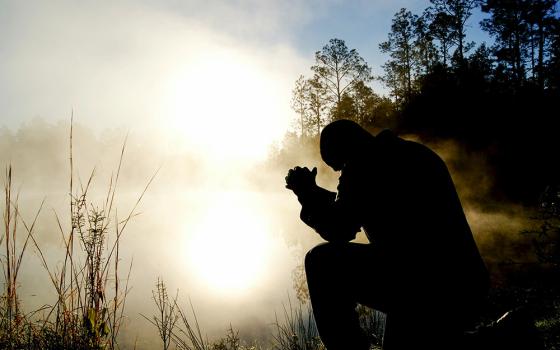By JOHN L. ALLEN JR.
Reflecting Venezuela’s growing regional power, as well as its recent history of bitter church/state conflict under leftist President Hugo Chavez, Pope Benedict XVI has dispatched one of his top diplomats as the country’s new nuncio, or papal ambassador.
The Vatican announced yesterday that Monsignor Pietro Parolin, 54, has been appointed the pope’s new representative in Caracas. The move means that Parolin, who has previously served in Vatican embassies in Nigeria and Mexico, becomes an archbishop.
Since 2002, Parolin has worked in Rome as the Vatican’s under-secretary for relations with states, a position which made him a primary point of contact for foreign diplomats, international leaders, NGOs, and journalists. He also represented the Vatican in a variety of sensitive assignments, including trips to North Korea and Vietnam as well as the 2007 “Annapolis Conference” on the Middle East convened by the Bush administration.
Over the years, Parolin has acquired a reputation as one of the “best and brightest” of his generation of church diplomats. He’s generally seen as hard-working, well informed, and gifted with the capacity to see issues from multiple points of view. Benedict’s choice to send him to Venezuela is thus seen by most Vatican-watchers not merely as a reward for Parolin’s long service, but also a way of putting one of the Vatican’s best diplomatic minds into one of its most sensitive assignments.
In part, the assignment reflects a Vatican diagnosis of Venezuela’s growing regional importance. It’s now the world’s ninth largest oil-producing nations and the seventh largest exporter, shipping over 2,000 barrels per days. That revenue allows Chavez to project considerable regional influence, often in leftist directions viewed with ambivalence by Catholic leaders.
At one level, Parolin will face the challenge of navigating relations with a regime that many Catholic leaders see as openly hostile to the church. Just this week, church leaders protested bitterly over the adoption of new education law that enshrines “Bolivarian doctrine” as the basis of educational policy. Church leaders have said the law abolishes the right to religious education and threatens the existence of some 700 church-run schools that receive a state subsidy.
Relations between Chavez and the church have never been rosy, despite the fact that Chavez claims his policies reflect the spirit of Jesus, whom he calls “the greatest Socialist in history,” and despite the fact that Chavez has his own court theologian, a Jesuit named Fr. Jesús Gazo, who serves as a chaplain at the Universidad Católica del Táchira. Gazo has said that Chavez has “a very strong theological formation.”
Chavez has rarely been shy about blasting church leaders or their policies. When Pope Benedict XVI defended the evangelization of the Americas during his trip to Brazil in 2007, Chavez asserted that it was not Christ who arrived with Christopher Columbus, but “the Anti-Christ.” Chavez also claimed that the decimation of indigenous persons during the era of European colonization was “a Holocaust greater than that which happened during the Second World War.”
Church leaders have been equally acerbic. When Chavez shut down the popular Venezuelan television outlet RCTV, perhaps no one spoke more strongly than Archbishop Baltazar Porras Cardozo of Mérida, who compared Chavez to Castro, Mussolini, and Hitler.
“The sectarianism of this government closes more space every day to those who are not totally aligned with it,” Porras said. “This revolutionary system in Venezuela is a mixture of Marxism, populism, and many other things, akin to governments like Fidel Castro, and to positions adopted by Hitler and Mussolini in Europe. Today, crime is defined as what in any other society would be considered a right – to disagree, to think, to express oneself differently from the government.”
Porras also criticized negative statements from the Chavez government about the Catholic Church.
“They speak of supposed scandals, and they place the bishops among those who are conspiring against the government, which is absolutely false,” he said.
On another level, Parolin will also be pressed to mediate tensions within the Catholic church itself, shaped by differing reactions to the Chavez government. Inspired by liberation theology, some leftist priests have accused their bishops of reactionary opposition to reform. Fr. Vidal González, for example, a pastor in Zulia state, told reporters in 2007 that the bishops have all but said they’d like Chavez dead.
Chavez’s anti-globalization and anti-American rhetoric plays well in progressive circles of Catholic opinion.
Fr. Jesús Silva, a Uruguayan priest, has lived in the Caracas slum of El Valle for 26 years, and claims there is “no doubt” that Chavez is a committed Catholic. The country’s “eternally excluded and exploited social classes,” Silva said, today feel “they have a man in whom they confide.”
Gazo, the Jesuit who serves as a Chavez advisor, agreed.
“It makes me sad that the official Church has been deceived by the country’s minority,” he said recently, “a part that identified with the right and with the dominant economic groups.”
If nothing else, all this suggests that Parolin’s diplomatic skills will be tested, both in the broader Venezuelan society and within the church.
Replacing Parolin as under-secretary for relations with states will be Monsignor Ettore Balestrero, an Italian who has previously served in Vatican postings in South Korea and the Netherlands.



